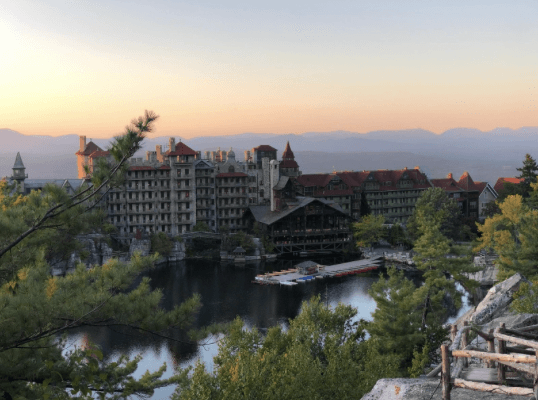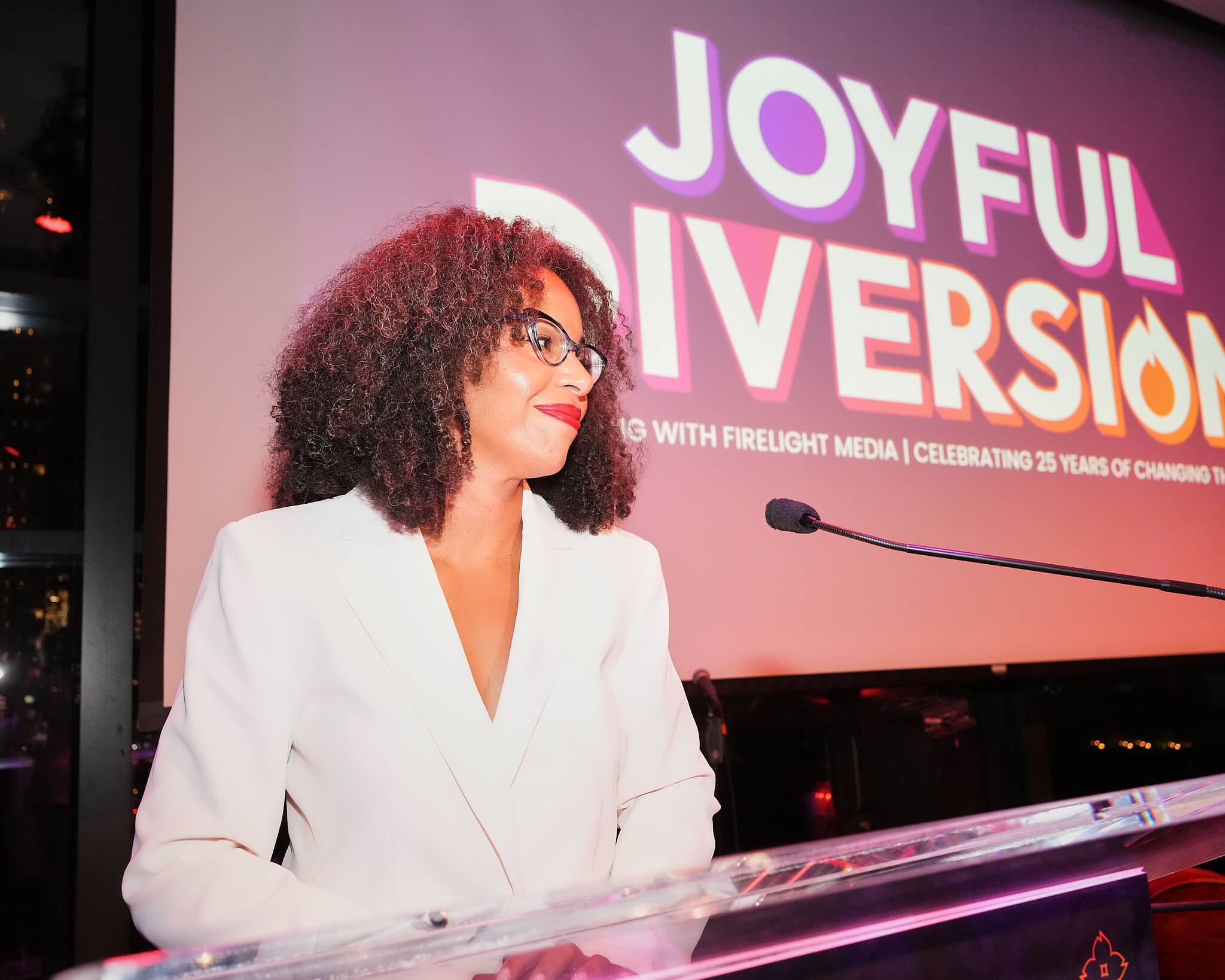Vulnerability.
What comes to mind when you hear that word? Weakness? Strength? Innately, does it hold a positive or negative meaning?
I’ve always struggled with the duality of what we do. As humanists, storytellers, truthseekers, our vulnerability is so critical, for it makes our work strong. But as filmmakers and directors, we also hide our vulnerability — projecting confidence, vision, and success. We become experts in sharing our accomplishments with an air of ease, when in reality, it took blood, sweat, and tears to get there.
For one weekend in late September, our Firelight cohort convened at the Mohonk Mountain House in upstate New York. Nestled in the calm water and greenery of the Mohonk Preserve, us twelve vulnerable doc-makers had a precious moment to recalibrate and recharge.

I was beyond exhausted. Before this, a few of us in our cohort had just survived the hurricane that is IFP Week. For four days, we pitched our projects to industry people, willing them to care about our communities and our films. Our throats were sore, our brains tired. On the bus to the Mohonk, we closed our eyes and crumpled into sleep. How often we find ourselves in the state of exhaustion.

If you’re reading this, you’re probably a filmmaker, too. You know the struggle. Our lives are full of extreme highs and lows. When connecting with our subjects and capturing truth, we feel such deep joy and validation. We use our vulnerability as our guiding light — a touchstone that allows us to access and share our stories with permission and trust. But behind the scenes, we find ourselves siloed in our work and mission to make our films as impactful as they can be. We think constantly about how to innovate, how to push form to new heights. While we challenge ourselves as artists, we put another hat on and struggle with grant writing, fundraising, team building, and personal sustainability. It can often be a headspace of continual panic, as we ignore our mental and physical health.
The public-facing side of us shows our wins. We smile at premieres, speak truth on panels, and feel humbled when lifted up by awards. Conversely, when defending our work to skeptical gatekeepers, we put on a brave face. The repeated questions of why this, why you, and why now hits a raw, vulnerable nerve, because ultimately, our work is us — by us and for us. Sometimes, it can feel like we are defending our right to exist.

In these extremes, it can be hard to place our vulnerability. Most times, it can feel like a detriment. “Why can’t I just suck it up?” we ask ourselves. However, during our convening, our cohort realized two universal truths: that vulnerability is an asset, and fear is what makes our projects better.
For this retreat, we focused on two topics around vulnerability: sustainability and collaboration. As we embark on a career of not just one project but many, we were humbled by master classes by Stanley Nelson, Stephen Maing, Tracie Holder, and Ela Troyano. They gave us food for the soul and the brain, holistic and practical advice on how to traverse the long road of our careers.
Tracie gave us a new approach the arduous task for fundraising — to look at it as part of our artistic process. She challenged us to lend every grant application as an opportunity to interrogate our work and clarify our ideas.

Stanley looked back on his incredible career and gave us gems on how to sustain a body of work. He was open about the vulnerability around making his first film, the burden of expectation, and tough lessons learned. He stressed — respect yourself by paying yourself. Period. He willed us to think — with each film, how are you stretching yourself? And he cautioned us — trust your gut. Because films take years to make, you can lose perspective on your work. “At some point, you aren’t making the film better, you are just making it different,” he said. We all clued into that.

Stephen introduced himself as a recovering control freak. We laughed — we aren’t alone! Speaking on collaboration, he was frank — not all collaborators work out, and that’s OK. Creative partnership is all about process — how we work together is just as important as what we work on. Loira shared her process and encouraged us to write down your fears — and talk about it with your collaborators so you can face them together. And ultimately, Stephen reminded us of why we’re there. “What we are doing is a retelling of critical history.” Our work is intense and passionate — so yes, we need to speak openly about burnout and self-care.
Finally, Ela capped it off with an honest — and hard — discussion around money. This was an emotional session for us. Personally, my immigrant relationship to money carries a lot of baggage. To tackle the psychological toll of income, savings, and career, Ela gave space for us to identify our vulnerability around money and deconstruct mental roadblocks around it. She gave us a concrete approach to how to attain sustainability and urged us to be more in tune with ourselves. How are you protecting your creative time? Are you honoring your commitment to yourself?
All of our mentors mentioned the duality in who we are. We need to be vulnerable for our art, but tough in our fight to sustain ourselves and our families. And that is OK. As Ela said, “You need to be soft on personality, but tough on the deal.”

Being in tune with our vulnerability — identifying it, facing it — made us feel stronger. At this second convening, sharing our vulnerability bonded our cohort even closer. This is the family that I’ve been so desperate to find. Thank you, Firelight, for all that you do to create families like this, for creating space for people of color to feel vulnerable and powerful. Thank you for giving us a moment to care for ourselves.
Now, in the words of Stanley, we will go back to the grind, and “go for it, with a vengeance.”




.png)
.png)
STAY CONNECTED









